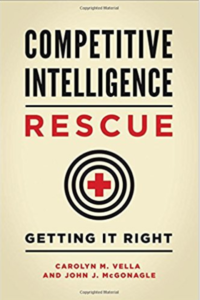I’ve been studying the differences between Information and Knowledge and the mechanisms by which the former is transformed into the latter — a core challenge of managing knowledge for value. In working with clients to develop ways to optimize this transformation, it occurs to me that this is what theories of education are concerned with.
Or at least, I hope they are. Though I have no formal training in pedagogical theory per se, I have logged many fieldwork hours working with clients on making the Information-Knowledge transformation as effective and efficient as possible. My experience, as well as that of other practitioners, points to the viability of personal connections between the holder of knowledge and the receiver of that knowledge as critical for success. This is why apprenticeships and internships remain so valuable for teaching complex skills, and why expert mentoring is so important in professional and personal development.
Dialogues rule
 The earliest known writings about “knowledge” are neither lectures nor didactic writings; they are dialogues between the ancient Greek philosopher Socrates and his colleagues and students. Transcribed and interpreted by his student Plato, the Socratic dialogues remain in print nearly 2500 years later — and his Academy forms a cornerstone of the Western practice of education.
The earliest known writings about “knowledge” are neither lectures nor didactic writings; they are dialogues between the ancient Greek philosopher Socrates and his colleagues and students. Transcribed and interpreted by his student Plato, the Socratic dialogues remain in print nearly 2500 years later — and his Academy forms a cornerstone of the Western practice of education.
Competitive Intelligence (CI) is a key element in any viable enterprise knowledge strategy. About intelligence (and other professional disciplines), it is often said that, though they can be learned, they can’t be taught. In such cases, the dialogue, the apprenticeship, and the master class remain the most powerful teaching tools — true gifts, if you can find them.
V+M to the “CI Rescue”
 Suppose you had the opportunity to listen in on dialogues with two world-class experts as they work on live cases in the knowledge-based field they helped create — would that be helpful and interesting?
Suppose you had the opportunity to listen in on dialogues with two world-class experts as they work on live cases in the knowledge-based field they helped create — would that be helpful and interesting?
Now you have that opportunity. Carolyn Vella and John McGonagle, long recognized worldwide for their expertise, their professionalism, and their ethical approach to competitive intelligence have opened their casebook in their book Competitive Intelligence Rescue: Getting It Right (Praeger, 2017). In effect you can look over their shoulders as they work with actual CI clients, who, though left anonymous, offer detailed questions and insights into how they operate.
Questions and answers
The book is structured around a set of “diagnostic quizzes” that can be used to quickly assess the level of a client’s (or employer’s) existing intelligence expertise and process. You can readily adapt these to your own work. Also included are many working checklists, client memos, and verbatim Q+A dialogues with clients.
Detailed answers to these diagnostic questions are then presented for each of a series of case studies, along with the authors’ responses to their clients’ questions. You can sense them actively coaching and mentoring their clients.
A range of cases
A wide range of clients and situations are represented. The first case discussed is a restaurant start-up that has little budget and no intelligence-trained staff. It’s in effect “DIY-CI,” a term that the authors have blogged about — and that arguably forms the bulk of the CI work being done out there. It’s practicaland real-world advice — and a refreshing change from most CI literature, the bulk of which comes out of complex, well-funded enterprises.
Detailed case studies are offered for a range of industries: food service, chemicals, manufacturing (two), financial services, technology, and retail. The lessons can be readily applied to any industry.
What’s even better is that each client situation presented is somewhat different: from the start-up with no CI staff, to the mid-size company creating a CI function and hiring a team, to the company needing to protect itself agains the CI activities of its rivals.
And then what happened?
It is said that, in conflict, no strategy survives contact with reality unchanged. In my experience, this equally holds true for any research strategy, no matter how detailed and well-thought out. Pivots, flexibility, and resiliency are what distinguish the most successful teams and projects from the rest.
The authors underscore this by presenting one-year follow-ups to show — sometimes in contrast to their original assessments — what actually happened in each situation. Sometimes, it’s what you expect — but sometimes not, and here is where the most valuable learning comes in.
They walk the talk
Though the authors are highly professional and principled — FULL DISCLOSURE I know them professionally and personally — they never come across as doctrinaire or arrogant. They largely avoid the government-favored “intel-speak” and fizzy abstractions that dim some of the best thinking in this field.
Any knowledge producer — researcher, practitioner, or manager — will learn something valuable here. Likewise, the user of intelligence — business owner, executive, or investor — will benefit by becoming an “educated consumer” of intelligence work products and by seeing what is possible, even with limited resources.
Double-duty theme
I find the book’s title an intriguing riddle of sorts. Is “CI coming to the rescue” of poor business moves? Or is CI itself being rescued, presumably from a mediocre or under-powered version of itself? Conveniently, and perhaps be design, the thematic motif works using either of these two meanings. CI can provide solid benefits to businesses and other organizations — and it does so best when it avoids the traps of lapsing into superficial or inconsequential performance.
We don’t often get the chance to peer into the experience-rich casebook of a team of world-class consulting practitioners. In Competitive Intelligence Rescue, paragons of practice Vella and McGonagle have opened their body of work to share it with us. If you are a practicing “intelligencer,” you owe it to yourself — and your clients — to do a deep dive on this.
